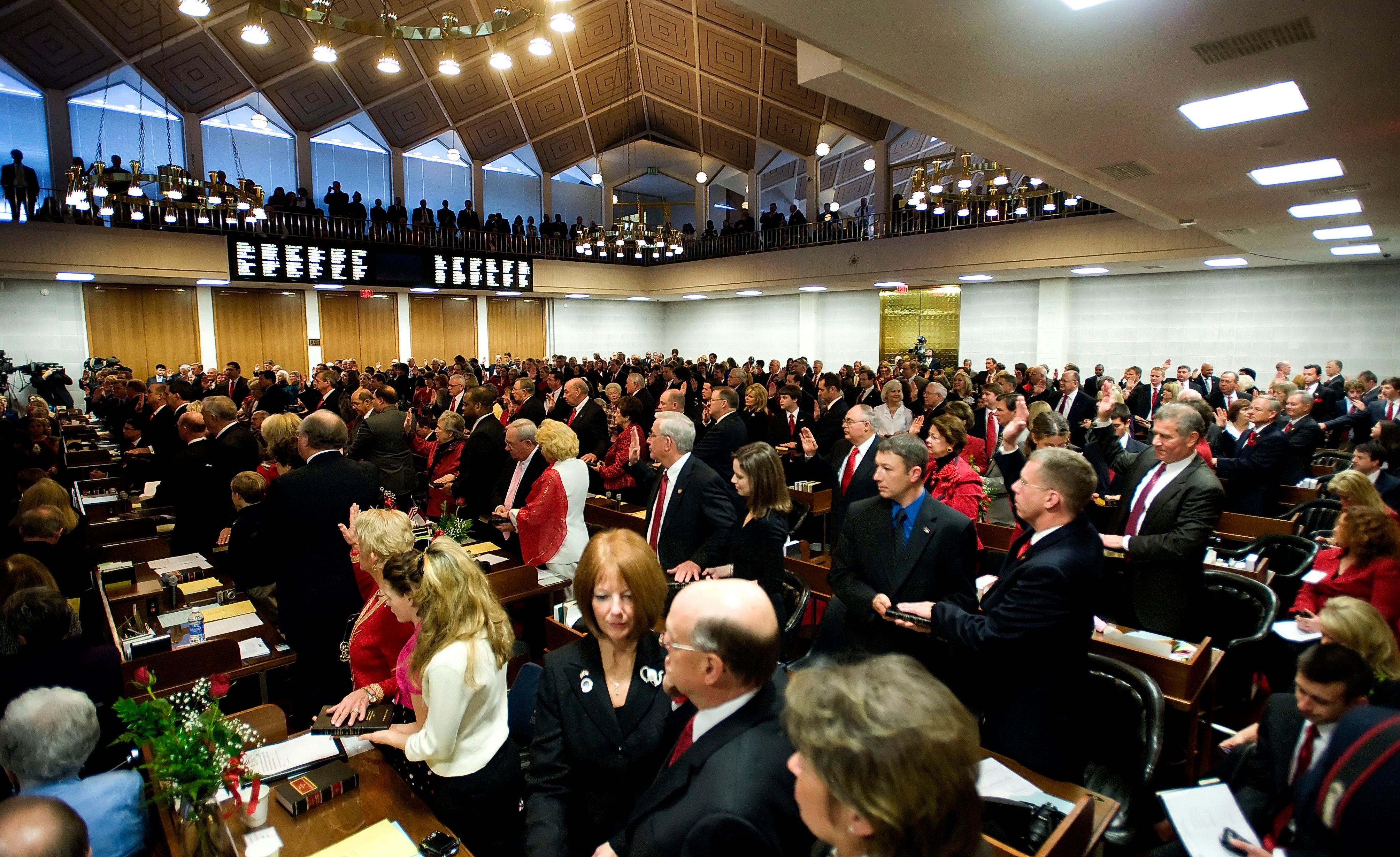Patrick Gannon: Don’t expect lame ducks in 2016
Published 12:00 am Saturday, January 2, 2016

- House of Representatives members stand are sworn in at the start of a session of the N.C. General Assembly in January 2014. File photo by Jon C. Lakey, Salisbury Post.
RALEIGH – With the filing period over for 2016 candidates, it is natural to look ahead to November.
Let’s not do that. There’s still the second year of the biennium to get through, with the 2016 legislative session beginning April 25.
Although the so-called “short session” is theoretically mostly limited to budget adjustments, in practice it isn’t. Three things can make summer sessions interesting to watch — as if spending $20-plus billion isn’t worth watching on its own.
No. 1 is the script and the question of how closely legislative leaders stick to it. In theory, lawmakers are supposed to adjust the budget for the second year of the biennium and consider bills that “crossed over.” In other words, the bills met a legislature-imposed deadline by which they had to pass either the House or Senate in order to be eligible for consideration in 2016.
More than 200 bills met the crossover deadline this year. The legislature can also consider budget bills, constitutional amendments, bills recommended by study committees, local bills, appointments bills, election law legislation and more.
But in reality, they can — and will — do just about anything they want. They will completely rewrite bills that made crossover into never-seen-before, often controversial legislation.
We already know that some powerful lawmakers have said they wanted to continue tax law changes in 2016, perhaps expanding the sales tax base further and increasing the standard deduction for taxpayers. Education issues certainly will be at the forefront, in the state budget talks and elsewhere.
House Speaker Tim Moore, a Kings Mountain Republican, has said salary boosts for state employees and cost-of-living adjustments for government retirees would be among his priorities. (It is an election year after all). And there’s always a strong possibility that controversial legislative proposal about social issues — such as abortion, same-sex marriage and guns — will arise.
No. 2 is that cast of lawmakers that will call Raleigh home for much of the summer. After the March 15 primary, 57 House seats and five Senate seats already will be decided, so those legislators will know they’ve already won two-year terms.
At the same time, roughly two dozen House and Senate members have either already resigned or announced they won’t seek re-election after the short session, meaning they either will be aggressively pursuing their final legislative priorities or riding off into the sunset like college-bound high-school seniors. A couple of other sitting legislators might be the classic lame ducks, having lost in the March primary.
Simply watching some powerful and longtime lawmakers spending their final days in the Legislative Building will add intrigue to the short session.
No. 3 is the stage. The 2016 short session will occur against the backdrop of heated campaigns for president of the United States, U.S. Senate, governor of North Carolina, Council of State seats and state legislative seats.
The governor’s race – expected to pit incumbent Republican Gov. Pat McCrory against Democratic Attorney General Roy Cooper – will be one of the most-watched in the country. The presidential race and the voters it brings to the polls could make or break the election hopes of many down-ballot candidates.
And as Senate leader Phil Berger, an Eden Republican, said recently, a “hundred things” will come up between now and the short session that we can’t even think of right now. At the start of the new year, meetings of interim legislative committees will pick up dramatically, examining such issues as energy policy, transportation funding, economic development and Medicaid.
If it was a TV show, I’d watch.
Patrick Gannon writes columns for Capitol Press Association.

